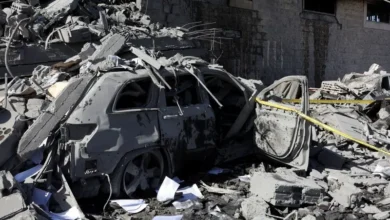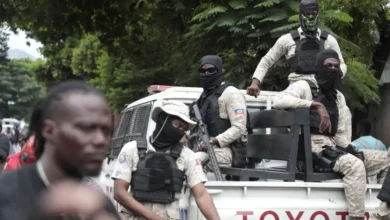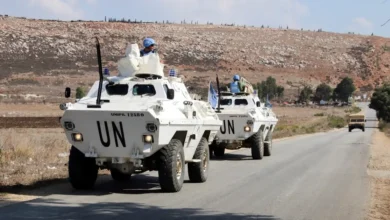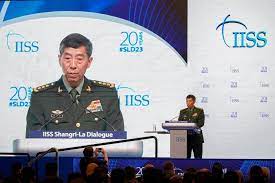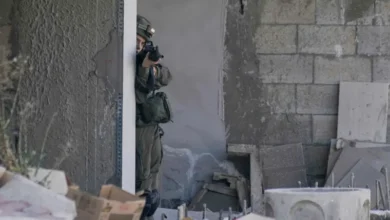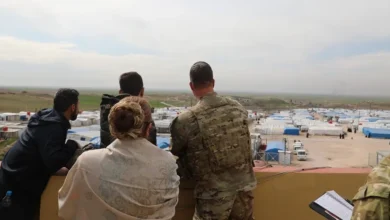Israel’s war on Gaza : Fierce battles in Rafah amid shift to Lebanon
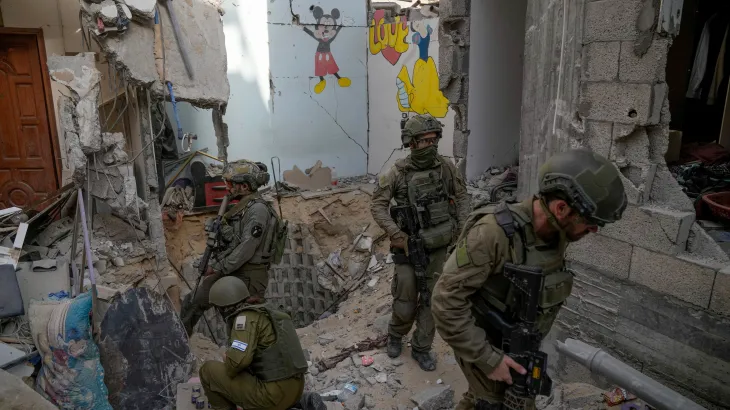
- Hamas’s armed wing releases a series of videos showing Palestinian fighters engaged in fierce battles with Israeli forces in the southern Rafah city, as the war on Gaza shifts focus to Lebanon.
- Hezbollah’s leader says Israel’s deadly device attacks are “a declaration of war” and will meet a response as Hamas praises its ally for “sacrifices” made in the nearly year-long fight.
US says Saudi, Israel deal in ‘interests of both countries’
On Wednesday, Crown Prince Mohammed bin Salman said Saudi Arabia will work “to establish an independent Palestinian state with East Jerusalem as its capital, and we affirm that the kingdom will not establish diplomatic relations with Israel without one”.
The State Department played down the remarks, noting Saudi Arabia has long made clear it wants a two-state solution and a ceasefire in Gaza.
“Every day that goes by it gets tougher to accomplish anything. That’s just a temporal fact,” State Department spokesman Matthew Miller told reporters.
“We continue to believe, however, that long term, of course, normalisation of relations between Saudi Arabia and Israel is in the interests of both countries. We are obviously quite aware of the challenges that we face in getting to those [goals] now. The fighting in Gaza continues to wage on. We continue to work to get a ceasefire.”
Khan Younis municipality urges displaced Palestinians to relocate
The call was directed towards Palestinian families in tent encampments near the coast of al-Mawasi, Khan Younis and central Gaza.
The municipality warned of rising sea levels, which it said could lead to tents quickly being “swept away”.
The UN says at least 90 percent of Gaza’s 2.3 million people have been displaced at least once since the start of the war in October. More than one million have been forced to flee to southern and central Gaza, which have come under repeated attack by Israel.
Can Israel fight a war on two fronts?
Hezbollah is weighing its options after two days of remote attacks targeted its members and civilians, killing at least 37 and wounding thousands, about 200 critically.
Israel has not commented publicly on the deadly explosions but says it’s opening a new phase in its war on Gaza in the north. But can it fight on two fronts? And is there any hope of a diplomatic solution?
Communications devices in Lebanon preloaded with explosives: Report
A preliminary investigation by Lebanese authorities into the electronic devices that blew up in Lebanon found they were implanted with explosives before arriving in Lebanon, according to a letter from the Lebanese mission to the UN and seen by news agencies.
The authorities also determined the devices, which included pagers and handheld radios, were detonated by sending electronic messages, the letter said.
“Initial investigations showed that the targeted devices were professionally booby-trapped … before arriving in Lebanon, and were detonated by sending emails to the devices,” it said.
Israeli forces strike several areas in Lebanon: Report
Israeli jets have targeted the towns of al-Mahmoudiya, Ksar al-Aroush and Birket Jabbour in the Jezzine area, Lebanon’s National News Agency reports.
Israel carried out dozens of air strikes across southern Lebanon, unnamed Lebanese security sources told Reuters, saying it was some of the most intense bombing since the start of the Gaza war in October.
Earlier, Israeli Defence Minister Yoav Gallant said Hezbollah “will pay an increasing price” as Israel seeks to return residents to its northern areas who have fled due to the near-daily exchanges of fire over the border with Lebanon.
Device attacks show Israel trying ‘to regain deterrence capacity’
Greg Stoker, a former US army ranger commando and now an analyst with MintPress News, says despite the pager and walkie-talkie blasts in Lebanon, he doesn’t see the security situation in northern Israel changing dramatically, adding Israel is “losing time to exploit this attack”.
“The fact they haven’t made a move is typical of a flashy operation. They do a massive information push to make it seem like a bigger victory than it is,” Stoker told Al Jazeera.
“From a strategic sense, this is a flagging war. Israel is used to fighting short, violent wars that last a few weeks, and this is a war of attrition. They’re struggling to deal with it, and it requires heavy information operations support.”
He said on October 7 “the myth of Israel being the most powerful military and intelligence organisation in the region was shattered”.
“So they are trying to regain that deterrence capacity. I don’t think they’ll be able to do it, but this operation will definitely be exploited to regain that image of a dangerous intelligence apparatus,” Stoker said.

